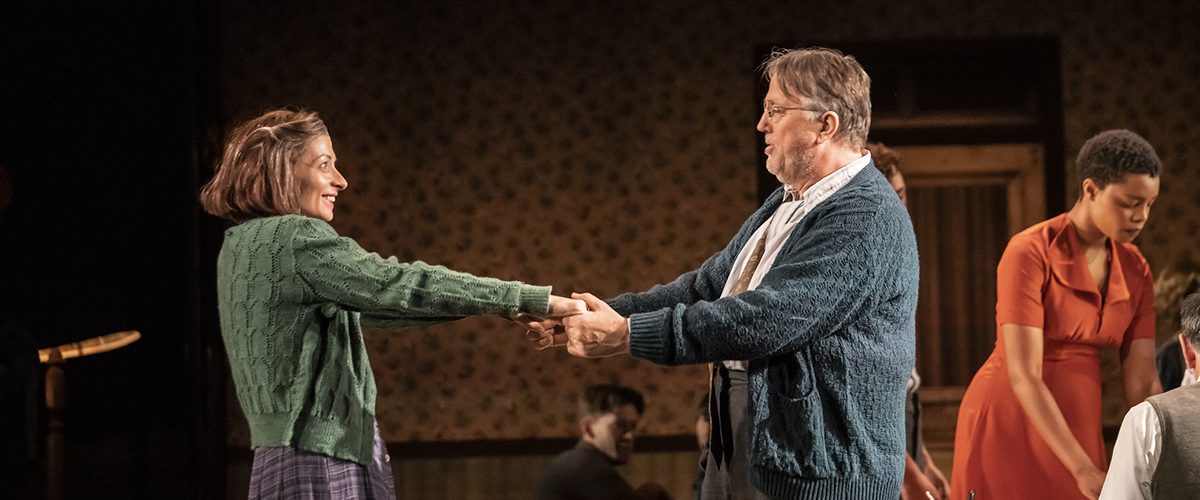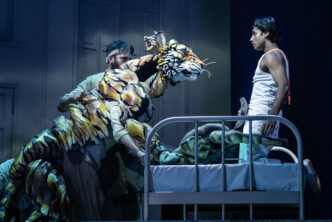In handing over his entire back catalogue (40 albums) with permission to “use any songs in any way he liked”, Bob Dylan dealt the gifted Irish writer, Conor McPherson a far better hand than, for example, Benny and Bjorn allowed Catherine Johnson (writer of the immensely successful, Mamma Mia). Where Johnson’s task was to construct what is popularly known as a ‘jukebox musical’ – a story showcasing the hits – McPherson was free to write a genuine musical drama. He has not wasted the opportunity.
The year is 1934, the Great Depression still grips America but, with FDR one year into his first stint as President, better times are coming. Sadly, they won’t arrive in Dulluth, Minnesota in time to save our motley but (mostly) deserving crew of characters.
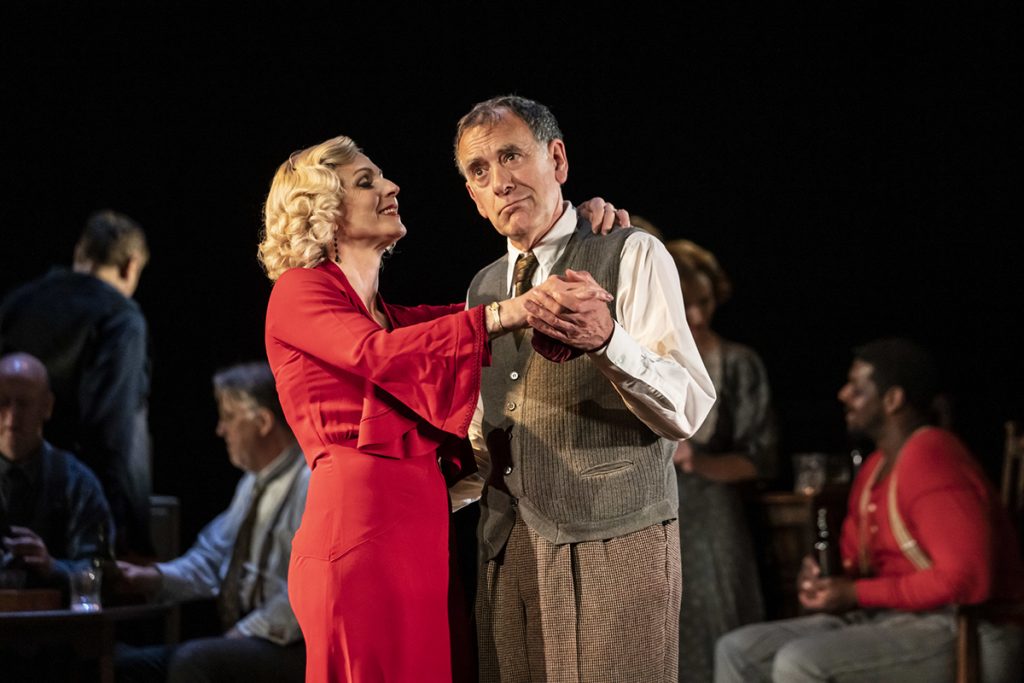
Nick Laine (Colin Connor) is struggling to keep his guesthouse open. Weighed down by poverty and a growing mountain of debt, he needs real help. Those closest to Nick, however, seem to need more from him than they are able to offer in return. His wife, Elizabeth (Frances McNamee), in the grip of some form of dementia, resists feeding, searches out weapons, squirrels away treasures and is always prone to speak her mind with unfettered clarity (the pre-show warning lists: flashing lights, gunshot and strong language). Son, Gene (Gregor Milne) has the alcohol-dependency but not, it seems, the talent of a Great American Writer. Adopted daughter, Marianne (Justina Kehinde) is the most practical of Nick’s immediate family, but she is also pregnant, unmarried and refusing to name the father of her unborn child.
Desperate to do his best for his children before the bank seizes the guesthouse, Nick plans to find Gene a job with the railroad, while pairing Marianne with the elderly owner of a shoe shop, Mr Perry (delivered with vulnerable pomposity by Teddy Kempner).
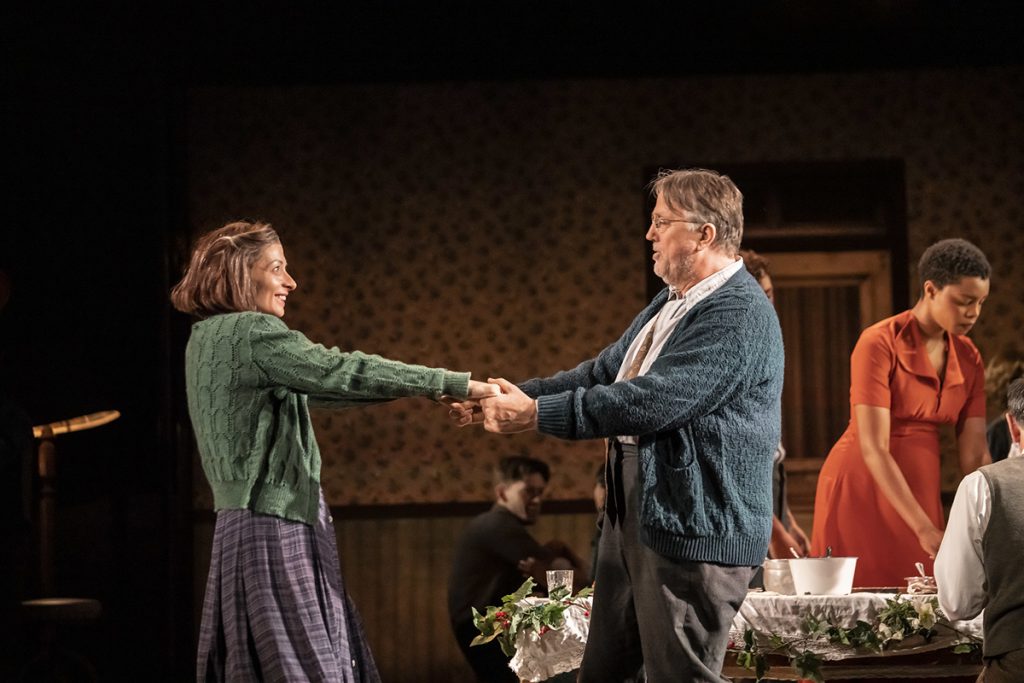
As in previous works (The Weir is perhaps his best known up till now), McPherson’s themes are love, loss and the essentialness of hope, even in the most hopeless of realities. Nick’s own hope lies with one of the residents, Mrs Neilsen (Nichola MacEvilly), who is waiting for her late husband’s estate to clear probate. Six hundred dollars isn’t much, but enough for her and Nick to dream of setting up a hotel back East.
Other guests include the Burke family: husband and wife with their adult son, Elias (Ross Carswell). Whilst Mrs Laine is descending towards a second infancy, Elias has never left his first: a simple, but not always gentle giant. Are the family really here in pursuit of one of Mr Burke’s debtors, or are they on the run to protect Elias from “justice” regarding some terrible crime, innocently committed?
Late one night, two more guests arrive. The Reverend Marlowe (Owen Lloyd) – a bible salesman of dubious credential and questionable morality (McPherson says he represents both God and the Devil) – and Joe Scott (Joshua C. Jackson) – a prizefighter, once wrongfully convicted of a serious crime (Dylan fans will know which song that cues).
Dr Walker (Chris McHallem) serves as narrator, commentator and character (after the manner of the lawyer, Alfieri, in Arthur Miller’s A View from the Bridge). McPherson skilfully exploits such tropes from American stage, screen and literary tradition, giving Girl from the North Country a tangible sense of American mythology. The overriding impact is to kick the legs out from under the fetishising of the Individual. None of these poverty-stricken individuals can triumph over the oppressive economic forces grinding their faces ever deeper into the dirt.
What is skilfully set up in act one, is paid off in act two, although some of the dramatic moments land with less emotional force than they promise (a peculiar failing, given that the writer also directs). McPherson does not shy away from grim reality (bear in mind what Matthew says befalls ‘those that have not’), but neither is this a tale devoid of hope. You just need to keep your ears open to catch it.
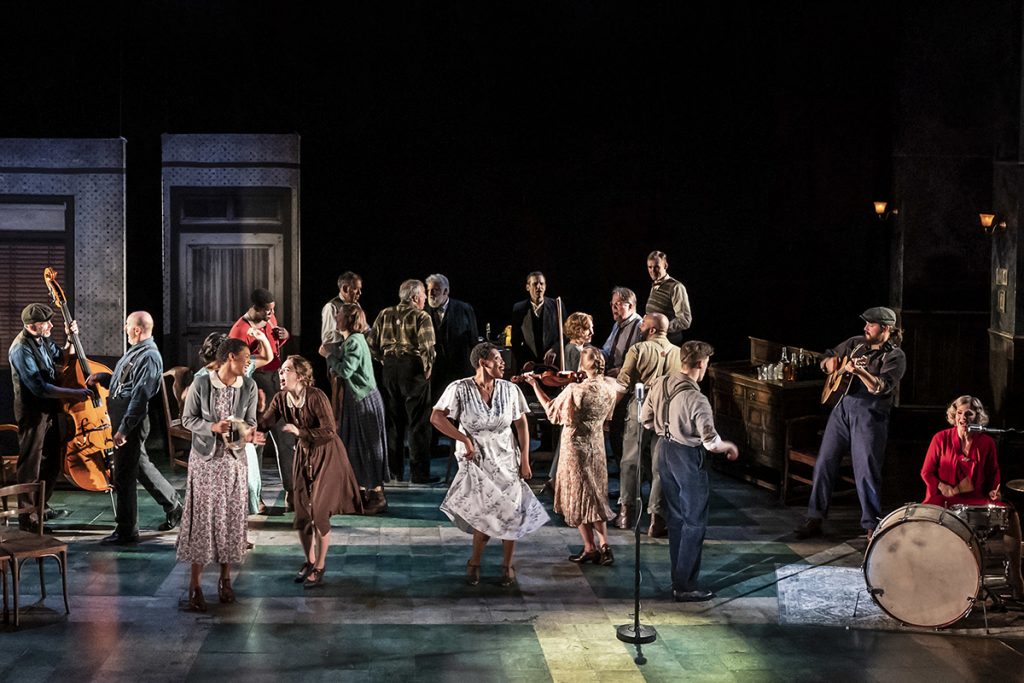
This is a genuine ensemble drama, with Colin Connor’s rendering of the flawed but essentially decent Nick providing a strong, beating heart at the centre of it all. He is ably supported, in particular by McNamee’s mischievous Elizabeth (punching home a heart-rending soliloquy about loneliness in act two), Justina Kehinde whose Marianne is all dignity and resolve, and Nichola McEvilly stepping up on the night as Mrs Nielsen – glamorous, gritty, loving and resilient. Movement director, Lucy Hind provides the kind of religious energy McPherson was seeking – the production is restless but never confused: like downtrodden folk seeking some way out.
And then, of course, there are the songs – cleverly arranged by Simon Hale, and thoughtfully delivered by cast and band (The Howlin’ Winds). The songs here are not King and (Dancing) Queen, but the able servants of a well-told tale. It all works very well, indeed.
Girl from the North Country is at The Lowry from 20-24 September 2022.

